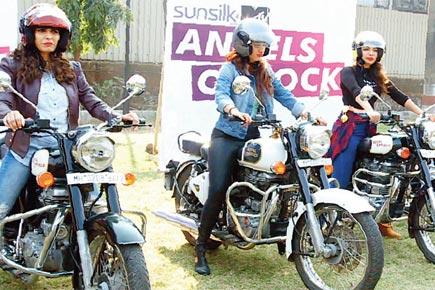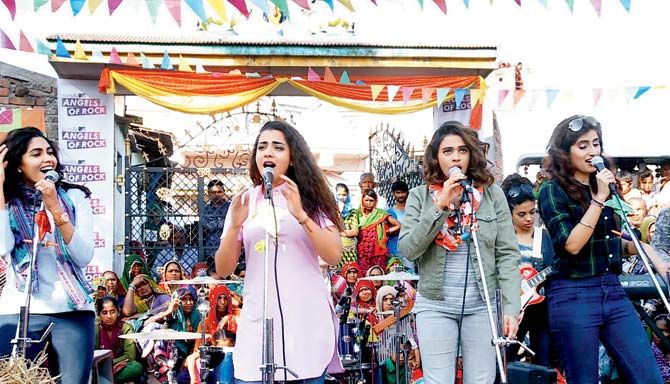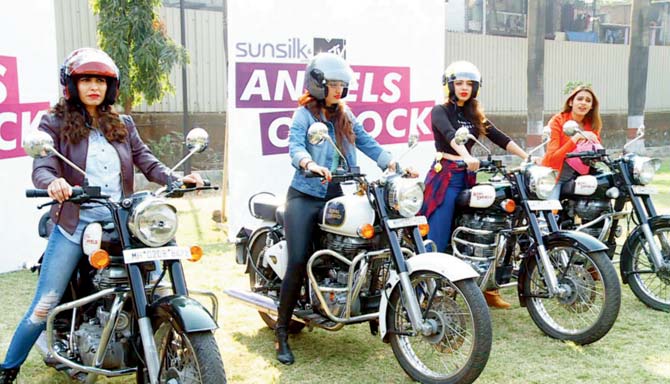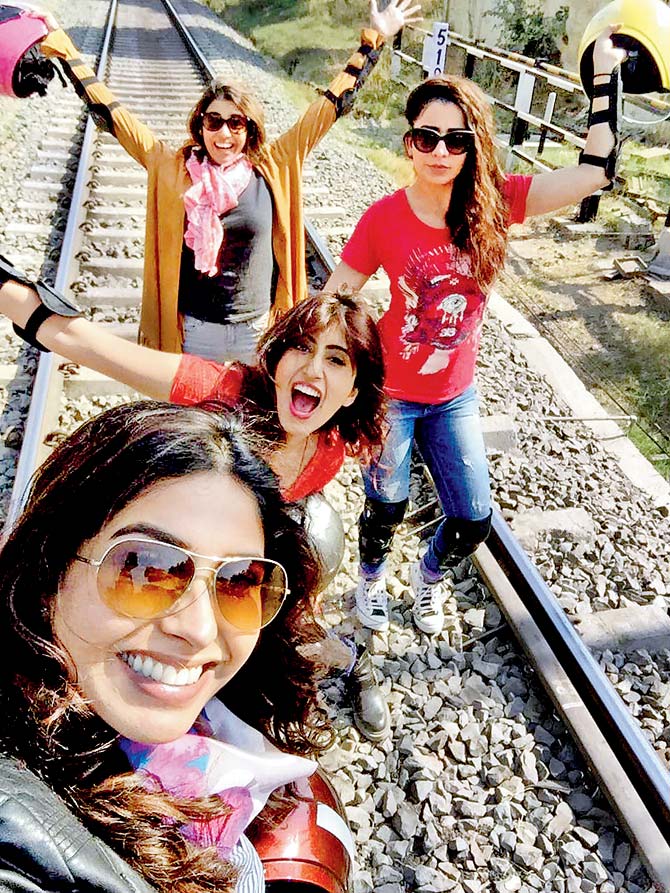Singer Shalmali Kholgade completed a 25-day bike tour across India to celebrate empowerment with a band of three girls


(Left to right) Anusha Mani, Jasmine Sandlas, Shalmali Kholgade and Akasa Singh during a performance on tour
ADVERTISEMENT
It has been four years since the Jyoti Singh gang rape in Munirka (South Delhi). The young woman succumbed to her injuries; Ram Singh (the main accused) died during the trial. Did the tragedy alter the mindset of those residing in remote India? "What I gathered from my experience is that there are pockets where women are categorised as those who stay home, are the housewife and caretaker of kids.
But it is an image that needs to be hidden," says Shalmali Kholgade, who twisted her wrists and accelerated a Royal Enfield on a 25-day India tour with a torch to celebrate empowerment through music. She was a part of a show on MTV titled Angels of Rock. With three power-packed friends for company — Jasmine Sandlas, Akasa Singh and Anusha Mani — she touched down at Vasudhara (Gujarat), Udaipur-Jaipur (Rajasthan), Rohtak-Shahabad (Haryana) and Chandigarh (Punjab).

(Left to right) Anusha Mani, Jasmine Sandlas, Shalmali Kholgade and Akasa Singh
"Born and raised in Mumbai, I will not be able to comment on safety; here, it is different from rural India," says Kholgade, who rose to prominence with the song Pareshaan from Ishaqzaade (2012). She asserted that women in metros are aware of empowerment but it will be a while before the message reaches the interiors.
The flag-off
The channel approached her with the concept and she agreed instantly. "Initially, I found the idea absurd because I had to ride a motorcycle and compose music. But it turned out to be interesting. To be frank, I wanted to be confident about composing tunes. I have done it before but I never had the courage to release them. I thought this could be a good start. It is a noble show. It will showcase women who are not written or spoken about," adds Kholgade, whose recent release, Baby Ko Bass Pasand Hai (Sultan), ruled the charts.

(Left to right) Anusha Mani, Jasmine Sandlas, Shalmali Kholgade and Akasa Singh
She didn't know how to ride a bike and had to take help from a trainer. "I couldn't avoid it. The bike-riding part came as a task as much as composing. It was a liberating experience to be on the national highway. Luckily, my trainer left his bike with me so that I could practise back home," she recalls, confessing that the bike, "was really heavy."
Songs and stories
Kholgade composed three songs on the tour — Khwahish, Gulaab Oh and an untitled tune. "Khwahish was a good headstart, the start of a journey kind of a song," she adds.
Gulaab Oh had a story to tell. "It was about the pink auto rickshaws ridden by women in Rohtak. These rickshaws were introduced to offer safe travel to women. There are areas that are unsafe, hard to findpublic transport which makes it difficult to come back home. These vehicles allow women to commute at late hours," says Kholgade, who interacted with the locals and discovered that everyone wanted to avail the pink mode of transport.
Time and space
A crew carried a guitar, bass guitar, percussions and a keyboard for the girls to compose the tunes. But riding through states day and night is one Herculean task. How did the brain agree to soulful music? "We jammed during the free hours, mostly after lunch in the afternoon and during evening snacks," she says. They would halt at one location for at least two days depending on the shoot. "I had the basic chords ready on my guitar which made it easy," she says.
 Subscribe today by clicking the link and stay updated with the latest news!" Click here!
Subscribe today by clicking the link and stay updated with the latest news!" Click here!







